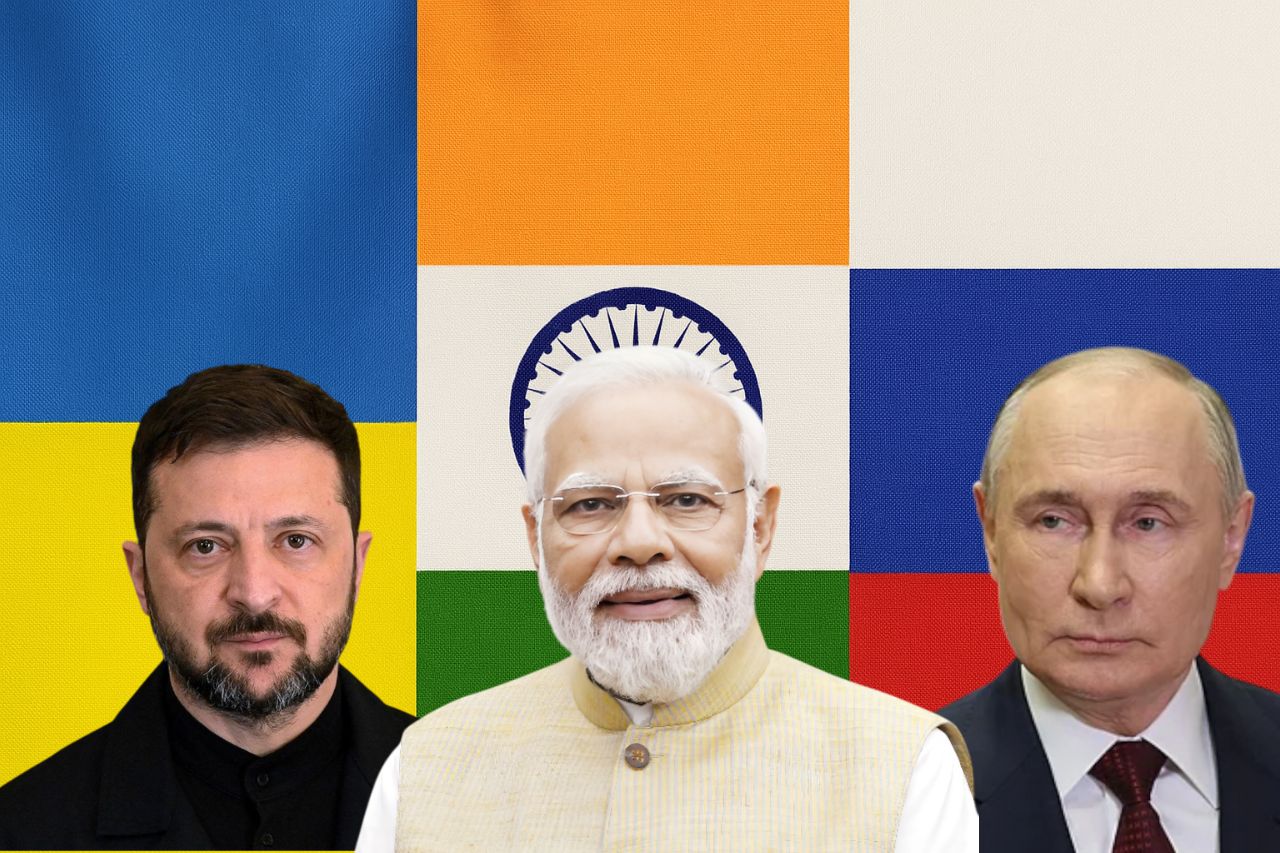Zelenskyy Says India “Mostly With Ukraine,” Warns Of Global Arms Race

At the UN, Zelenskyy balanced praise for India with a push to cut energy ties with Russia, framing New Delhi as a pivotal player in a world facing AI-driven warfare. Image courtesy: RNA
In his address to the United Nations General Assembly, Ukrainian President Volodymyr Zelenskyy offered cautious praise for India’s stance in the Russia–Ukraine war, saying India is “mostly with us” while urging New Delhi to reconsider its energy ties with Moscow.
His remarks on India took centre stage in a broader appeal for global solidarity against Russian expansion, as he warned of the dangerous escalation of weaponized technologies.
What Zelenzkyy said about India?
While responding to recent US criticisms that India and China fuel Russia’s war through energy imports, Zelenskyy struck a more diplomatic tone toward New Delhi. He affirmed that “India is mostly with us,” even as he acknowledged ongoing “questions with energy.”
Zelenskyy urged deeper cooperation between Europe and India to shift New Delhi’s energy approach away from Russia. He said: “We have to do everything not to withdraw India, and they’ll change their attitude to the Russian energy sector.”
The Ukrainian leader’s remarks appeared calculated, not to alienate a strategically important country, but to encourage India toward greater alignment with Kyiv’s position. Zelenskyy’s posture may reflect growing attempts to build a broader coalition beyond Western support.
Is India’s stand neutral but complex?
India has maintained a largely neutral posture in the Ukraine conflict. It has abstained from many UN resolutions condemning Russia, citing respect for sovereignty and diplomacy.
Meanwhile, Russia has lauded India for its “balanced and independent” orientation.
In the past, Zelenskyy publicly reproached India for its ongoing ties with Moscow, for example, after Prime Minister Narendra Modi visited Russia.
But on this occasion, he opted for a more constructive appeal rather than criticism, signaling a desire to bridge diplomatic divides.
What other broader claims did Zelenskyy make?
Beyond his comments on India, Zelenskyy’s UN address was wide-ranging and urgent. He warned that the world is now engaged in “the most destructive arms race in history,” driven by drones, artificial intelligence, and autonomous weapons systems.
He argued that without real security guarantees and regulation of AI in militaries, no place on Earth would remain safe. He emphasised the stark reality that in today’s war, weapons, not international law or cooperation, decide who survives.
Zelenskyy also accused Russian President Vladimir Putin of seeking to expand conflict across Europe, citing incursions by Russian drones across European airspace. Another key warning in his speech involved Moldova, where Russian troops remain in the breakaway region of Transnistria.
Zelenskyy cautioned that “Europe cannot afford to lose Moldova too,” urging urgent support in funding and energy to guard against Russian influence.
On the US front, Zelenskyy welcomed what he saw as a shift in tone from Donald Trump, whom he recently met. Trump expressed confidence that Ukraine could reclaim all its lost territory, marking a notable departure from earlier suggestions of negotiation and concessions.
Zelenskyy said their meeting was “good,” and that together with other world leaders, “we can change a lot.”
Zelenskyy’s remarks on India and the rest of his speech reflect a dual strategy: to rally new partners and to energize existing ones. By signalling India as a potential ally, even if an imperfect one, Kyiv appears intent on reshaping diplomatic alignments.
At the same time, his broader warnings about AI-driven escalation, Russian expansion, and regional vulnerabilities aim to heighten urgency in the global response to the war.







